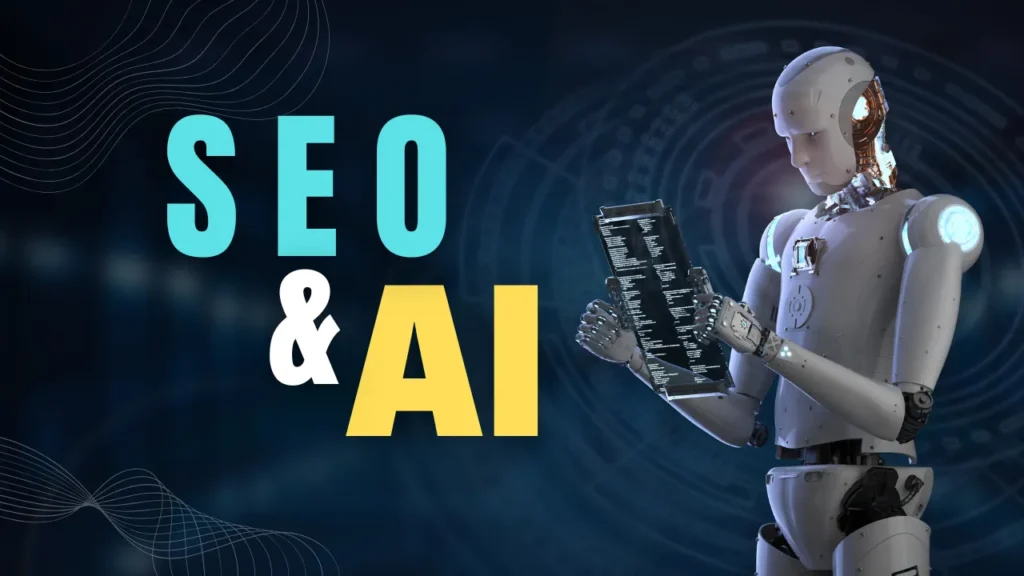A Hidden Change Everyone Should Know
There’s a major shift happening in SEO and AI, and most people have no idea what’s really going on. Last year, many strategies that worked before no longer bring the same results. Today, if you want success with SEO, it needs your full-time focus and constant learning. Things are changing quickly, and understanding this transformation gives you a real advantage.
Why SEO Needs Full-Time Focus
Anyone serious about SEO now spends hours every day researching, testing, and analyzing strategies. What worked even a few months ago may not work now. SEO has become a hands-on field where those who stay updated and test regularly will see consistent growth.
The Rise of AI in SEO
Some people still believe AI doesn’t work for SEO, while others are already using it to gain huge advantages. The truth is, AI is deeply involved in how search engines operate. Algorithms like RankBrain and Hummingbird have evolved to understand user intent, context, and content quality in ways we’ve never seen before. AI helps search engines identify valuable, relevant, and trustworthy content faster than ever.
How AI is Changing SEO
Modern SEO isn’t just about keywords anymore. It’s about meaning, structure, and user satisfaction. AI tools now analyze content the same way humans do — looking at tone, context, and depth. That’s why high-quality, useful content ranks better than simple keyword stuffing.
Using AI for SEO Tasks
AI can now assist with almost every part of SEO:
- Keyword Research
- Content Writing
- On-Page Optimization
- Technical SEO
- Off-Page Link Building
Tools like ChatGPT and other AI assistants can automate many of these small but time-consuming tasks. You can use AI prompts to generate outlines, write drafts, suggest title tags, or analyze your competitors’ content.
AI Tools That Make SEO Easier
There are multiple AI tools designed to make SEO tasks simpler and faster. These include:
- NeuronWriter
- Frase
- Surfer SEO
- RankAbility
Each tool has its own focus. Some help with content generation, while others analyze SERPs (Search Engine Results Pages) and extract semantic keywords. Using a combination of these tools can speed up your workflow and improve content quality.
How to Write SEO Content with AI
When using AI to write content, focus on three things:
- Keywords – Target the right search terms.
- Outline – Organize your content with clear sections.
- Semantic Data – Include related words and concepts that make your content more complete.
Start by generating a keyword list using your chosen SEO tool. Then upload that list or paste it into your AI assistant to generate an outline. Once the outline looks good, expand each section into a full article. Make sure to check readability and factual accuracy before publishing.
Why Learning SEO Is Still Worth It
Many people pay thousands to learn SEO from paid programs, but knowledge itself isn’t expensive — tools and testing are what cost money. Courses that include live classes, LMS platforms, and tool access usually cost a few thousand per month to run. However, the investment pays off when you apply the knowledge practically and stay ahead of changing algorithms.
The Real Cost Behind SEO Training
Running a professional SEO setup often involves subscriptions to tools, hosting, and team management software. Even free courses cost time and resources to maintain. What matters is learning the core process, staying consistent, and applying what you learn in real projects.
Final Thoughts
SEO and AI are merging faster than most people realize. Those who understand how AI interprets and ranks content will stay far ahead of the competition. Success in SEO now depends less on guessing keywords and more on understanding intent, structure, and data.
FAQs
1. Is AI-generated content safe to use for SEO?
Yes, as long as it’s edited and optimized for accuracy and readability. Search engines don’t penalize AI content; they penalize low-quality or spammy content.
2. Which AI tool is best for SEO beginners?
For beginners, tools like Frase or NeuronWriter are great options. They offer keyword suggestions, topic outlines, and content optimization features that are easy to use.
3. How can I make sure my AI-written content ranks?
Focus on adding human review, semantic keywords, and original insights. Google rewards content that feels authentic and offers value.
4. Do I still need backlinks if I use AI?
Yes. Backlinks are still a strong ranking factor. AI helps improve your content quality, but you still need links from trusted websites to build authority.
5. How often should I update my SEO strategy?
At least every 3–6 months. Algorithms change, and new tools appear constantly. Keep testing and refining your methods to stay competitive.


Leave a Reply